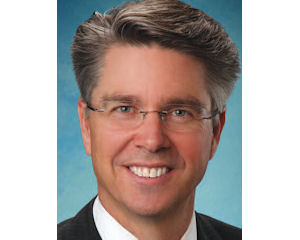Glendale Adventist Medical Center will join other area hospitals, when it launches a medical foundation July 1 that allows it to acquire physician’s practices. As part of the move, the hospital also announced its first two acquisitions under the new model — that of an urgent care practice, RapidCare in Glendale and Burbank, and a multi-specialty group, Universal Primary Care, in Glendale. The two practices together employ 15 doctors and 80 other employees that will now be part of the foundation, the Adventist Health Physicians Network. “The intent of the foundation is to create a larger continuum of care to take care of people outside the walls of the hospital,” said Glendale CEO Kevin Roberts. An employment relationship with the doctors assures hospitals of a steady supply of patients, said Dr. Mitch Morris, a principal in the Life Sciences and Health Care practice of Deloitte in Los Angeles. More importantly, by employing doctors through a foundation, hospitals are able to “take on risk,” Dr. Morris said. As the health care system transitions to a model where doctors and hospitals are rewarded for keeping patients healthy and out of the hospital — rather than for fixing people up when they are sick — the employment model allows health care providers to take new forms of pay such as capitation or bundled pay, he said. “Health plans, or the federal government, are saying, ‘Here is a bucket of money. Go figure out how to split it,’” Dr. Morris said. “It’s no longer a fix-it shop. It’s population health management.” The arrangement also allows hospitals to position themselves as more effective partners to insurance plans and managed care companies who are increasingly looking for integrated providers who can offer the entire continuum of care from outpatient to inpatient. It also allows hospitals to better control what happens to patients before they are admitted and after they are discharged. The hospital will share its electronic medical records with the physicians, allowing patients to be followed more easily, improving care and eliminating duplicate testing. “This allows us to track patients into the hospital or through any other service and back out to the community,” said Kim Milstien, vice president of business development for Glendale Adventist and the incoming president of Simi Valley Hospital. “This is how we get reductions in readmissions, better management of patients who are in and out of nursing homes. It’s how we manage the more complex patients with multiple conditions who revolve the doors of the hospital. Without the foundation vehicle, we are not able to do that.” The Affordable Care Act is accelerating the movement to such models of pay and physician employment, which in turn is spurring a change like Glendale’s. But many observers say the change will stick even if the Supreme Court strikes down the health care reform law in the coming weeks. Glendale follows other hospitals, including Providence Health & Services, in creating such foundations for acquiring doctors’ offices, making the physicians in essence employees. Hospitals across the country are able to freely hire physicians, but California state law forbids the practice unless it’s through a foundation. It’s the same principle that allows Kaiser Permanente to hire physicians. Providence has been on the prowl for doctors’ offices through its own foundation, the Providence Medical Institute, which has been buying the assets of doctors’ practices throughout the Valley and in the Santa Clarita area. For doctors, the arrangement is attractive for its financial security. Private practice doctors increasingly are under pressure because reimbursements are declining but their expenses are not. Indeed, the cost of running a practice has only grown as big-ticket items like electronic medical records become an indispensable part of a practice. Selling a practice to a hospital foundation also frees physicians from what many see as increasingly burdensome administrative tasks. Foundations typically will have a contractual relationship with a management service organization, or MSO, which takes care of those tasks, including payroll, information technology management, scheduling, hiring and insurance claims processing. Glendale purchased an MSO — Premier Health Management Group — as part of its plan to bring more physicians on board. Roberts said Glendale is planning to bring more physicians into the fold as it grows its new network. “We believe this community needs to be served, so we are looking for physicians across the range.” Roberts said, however, that Glendale does not plan to look for acquisitions outside its service area in Glendale and the foothill communities. “We’re not going to invade other territories.” RapidCare and Universal’s owners and physicians were not available for comment. Hospitals acquiring physician practices is not new. In the 1990s, hospitals went through a round of such transactions, many of which did not turn out well. Doctors expected — and often received — big upfront payments, which hurt the value of the deals from the outset. Today, doctors typically are not paid large upfront sums. In fact, often there is no upfront payment. Instead, physicians get job security, a paycheck, and the overhead of running an office taken over by the foundation. “It’s not for everybody,” Dr. Morris said. “But many today prefer the salary position, the predictable hours, the income and the lifestyle.”
